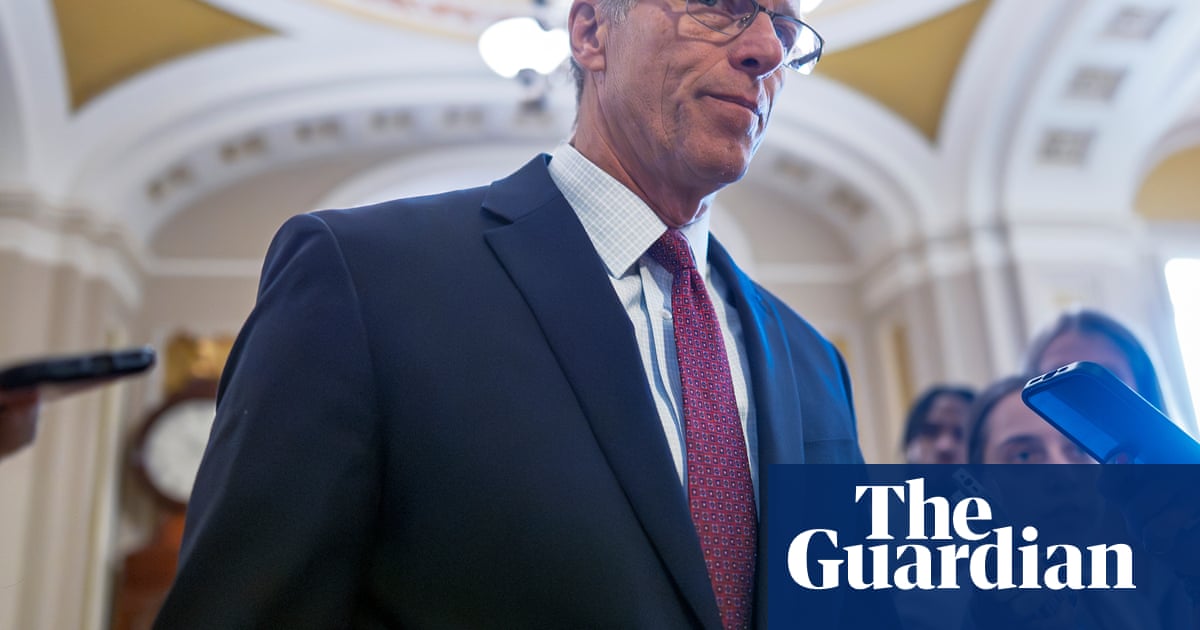TheUS Senateopened debate onDonald Trump’s sprawling domestic policy legislation on Sunday, the package of tax cuts, increased spending on immigration enforcement, and drastic reductions in funding for healthcare and nutrition assistance that the president calls his“big beautiful bill”.
Formal debate on the measure began after Democrats forced Senate clerks to read the entire 940-page bill aloud, to underscore their argument that the public is largely unaware of what the package Trump branded “beautiful” actually contains, and to delay a final vote until Monday.
After the debate, amendments could be brought up for consideration in a marathon session colloquially known as a vote-a-rama.
The changes made to the bill in the Senate would pile trillions on to the nation’s debt load while resulting in even steeper losses in healthcare coverage, the non-partisan Congressional Budget Office said in a newanalysis, adding to the challenges for Republicans as they try to muscle the bill to passage.
The CBO estimates the Senate bill would increase the deficit by nearly $3.3tn from 2025 to 2034, a nearly $1tn increase over the House-passed bill, which CBO has projected would add $2.4tn to the debt over a decade.
The analysis also found that 11.8 million more Americans would become uninsured by 2034 if the bill became law, an increase over the scoring for the House-passed version of the bill, which predicts 10.9 million more people would be without health coverage.
The stark numbers are yet another obstacle for Republican leaders as they labor to pass Trump’s bill by his self-imposed 4 July deadline.
After the new cost of the bill was released, Trump used his social media platform, Truth Social, to cajole and threaten lawmakers from his own party. In a Sunday eveningpost, the president urged Republicans concerned about adding to the debt not to “go too crazy”, and reminded them that elected officials who cross him tend not to stay in office long. “REMEMBER, you still have to get reelected”, the president wrote.
Wavering Republicans probably understood Trump’s comment loud and clear, coming just hours after one of their number, Thom Tillis, a North Carolina senator, voted against advancing the bill on Saturday and was subjected to a torrent of threats and attacks from the president. Tillisannounced on Sundaythat he would not stand for re-election in the 2026 midterms.
Even before the CBO’s estimate, Republicans were at odds over the contours of the legislation, with some resisting the cost-saving proposals toreduce spending on Medicaidand food aid programs, even as other Republicans say those proposals don’t go far enough. Republicans are slashing the programs as a way to help cover the cost of extending some $3.8tn in Trump tax breaks put in place during his first term.
The push-pull was on vivid display on Saturday night as a routine procedural vote to take up the legislation in the Senatewas held open for hoursas Vice-President JD Vance and Republican leaders met with several holdouts. The bill ultimately advanced in a 51-49 vote, but the path ahead is fraught, with voting on amendments still to come.
Still, many Republicans are disputing the CBO estimates and the reliability of the office’s work. To hoist the bill to passage, they are using a different budget baseline that assumes the Trump tax cuts expiring in December have already been extended, essentially making them cost-free in the budget.
The CBO on Saturday released a separate analysis of the GOP’s preferred approach that found the Senate bill would reduce deficits by about $500bn.
Democrats and economists decry the GOP’s approach as “magic math” that obscures the true costs of the GOP tax breaks.
In addition, Democrats note that under the traditional scoring system, the Republican bill would violate the Senate’s Byrd Rule that forbids the legislation from increasing deficits after 10 years.
In a Sunday letter to Jeff Merkley, an Oregon senator and the top Democrat on the Senate budget committee, CBO director Phillip Swagel said the office estimates that the finance committee’s portion of the bill, also known as Title VII, “increases the deficits in years after 2034” under traditional scoring.
